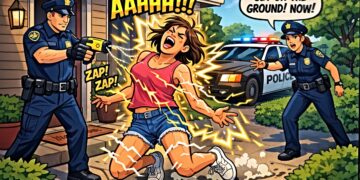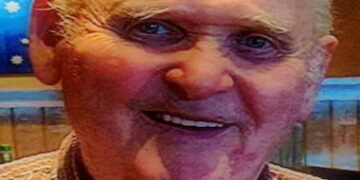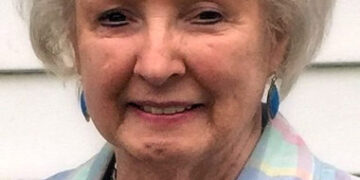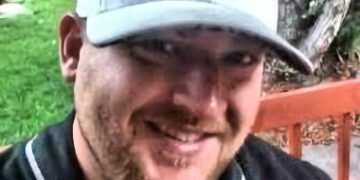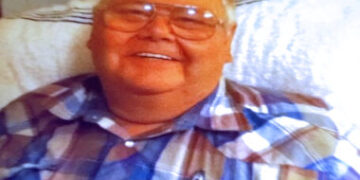Strange tingling in your fingers. A headache that just won’t go away. Forgetting names or places more than usual. Such symptoms are easy to brush off, but they may point to something sinister.
Neurological symptoms often range from mild and temporary to serious and life-threatening. In any case, they’re not something you ignore or neglect for long.
This article is Scioto County’s guide to neurological symptoms. Discover information to understand the signs and take prompt action for better brain health and faster recovery.
Common Symptoms That Need Medical Attention
There are several kinds of neurological symptoms one may experience. Some are temporary, whereas others are more serious and demand immediate medical attention.
The Cleveland Clinic states neurological disorders can cause physical, cognitive, emotional, and behavioral symptoms. Let’s focus on the most common ones that call for medical intervention:
- Severe headaches that are also recurring
- Sudden changes in vision
- Confusion and memory loss
- Numbness or tingling in the arms, legs, and face
- Slurred speech or difficulty in speaking
- Loss of coordination or balance
- Seizures
- Chronic fatigue not explained by other conditions
- Difficulty falling asleep
People often think that such symptoms are caused due to stress or a lack of sleep. While that’s possible, they should not be recurring or getting worse. In either of the two cases, the above-mentioned neurological symptoms point to something more serious.
Possible Causes of Neurological Symptoms
The symptoms we just discussed may be the result of several underlying causes. Let’s look at some of the typical ones:
- Migraines or tension headaches
- Vitamin D or B12 deficiencies
- Diabetes-related nerve damage
- Infections affecting the brain and the spinal cord
- Medication side effects or hormonal changes
- Autoimmune conditions like multiple sclerosis
- Vascular issues, such as mini-strokes
- Substance abuse, such as opioid use disorder (OUD)
On that note, Scioto County has been the epicenter of the OUD pandemic. Many survivors of this disorder report neurological symptoms, ranging from chronic headaches to cognitive changes and nerve damage. Given such lingering issues, Scioto County is steadily looking for funding that supports local treatment services and recovery.
Ongoing Emphasis on Prescription Awareness
This point deserves a separate mention, given how there’s been a growing emphasis on prescription awareness in recent years. It comes from a combination of medical, social, and legal developments. Many prescriptions used to manage blood pressure, chronic pain, and reproductive health have neurological side effects that became apparent with time.
The litigation surrounding Depo Provera, an injectable contraceptive, is a national example that has taken the spotlight. TorHoerman Law shares that recently, women and advocacy groups have raised concerns about its effects on bone density and neurological health.
The potential Depo-Provera lawsuit settlements of 2025 have become a key part of the national conversation around prescription transparency and informed consent. Such nationwide developments resonate with Scioto County locals, where long-term medication use is a common practice.
This isn’t about ringing alarm bells, but about making sure that patients:
- Know the full range of their available options
- Understand possible side effects
- Feel empowered to ask questions
What Should You Do if You Notice Symptoms?
If you or someone you know experiences recurring and persistent neurological symptoms, do not dismiss them as stress or aging. Early detection makes a meaningful difference, and here are the steps to take:
- Maintain a symptom log where you note when the symptoms occur, what they feel like, and how long they last.
- Schedule an appointment with your local primary care provider. They may conduct a neurological screening or refer you for imaging, like a CT or MRI scan.
- Ask for a referral to a neurologist, be it through a hospital in Columbus or telehealth services through Ohio Health. This is mainly crucial for those whose symptoms continue without a clear cause.
- Review current medications and enquire about them in case your healthcare provider doesn’t bring them up.
- Stay in touch with your healthcare provider even if the initial tests are inconclusive. Update them on worsening symptoms and any new developments.
- Don’t be afraid to advocate for yourself. Monitor changes and ask for a second opinion if needed.
Resources for Scioto County Residents
It can be overwhelming to navigate neurological symptoms, especially when you feel unsure where to begin. Fortunately, there are several local and regional virtual resources available for Scioto County residents.
They offer support for everything, from diagnosis to treatment and prescription guidance. Below are the most trusted ones to consider:
- Southern Ohio Medical Center – You can find evaluations for headaches, seizures, and memory issues. Services include imaging referrals and rehabilitation for patients suffering from strokes and other neurological events.
- SOMC Sleep Center – This resource addresses sleep disorders linked to neurological conditions. It offers overnight sleep studies and daytime testing.
- Ohio Health Neuroscience – This is the resource to use when you need to access neurologists or neurospecialists via secure telehealth services.
- FDA MedWatch – It’s a free Federal reporting tool for patients to report any medication-related side effects. This is an important resource for those concerned about medicine use.
In the final analysis, Scioto County needs to ramp up its health awareness, especially from the standpoint of neurological health. It’s been faring worse in terms of health outcomes compared to any other county in Ohio or the US in general.
Rural health journalism is particularly underutilized. It’s important to break barriers by:
- Raising local awareness
- Empowering residents through actionable steps
- Offering free resources
- Confronting access gaps directly
When residents feel empowered, they will ask questions and seek second opinions if necessary. As for you, always remember that help may be closer than you think!
















